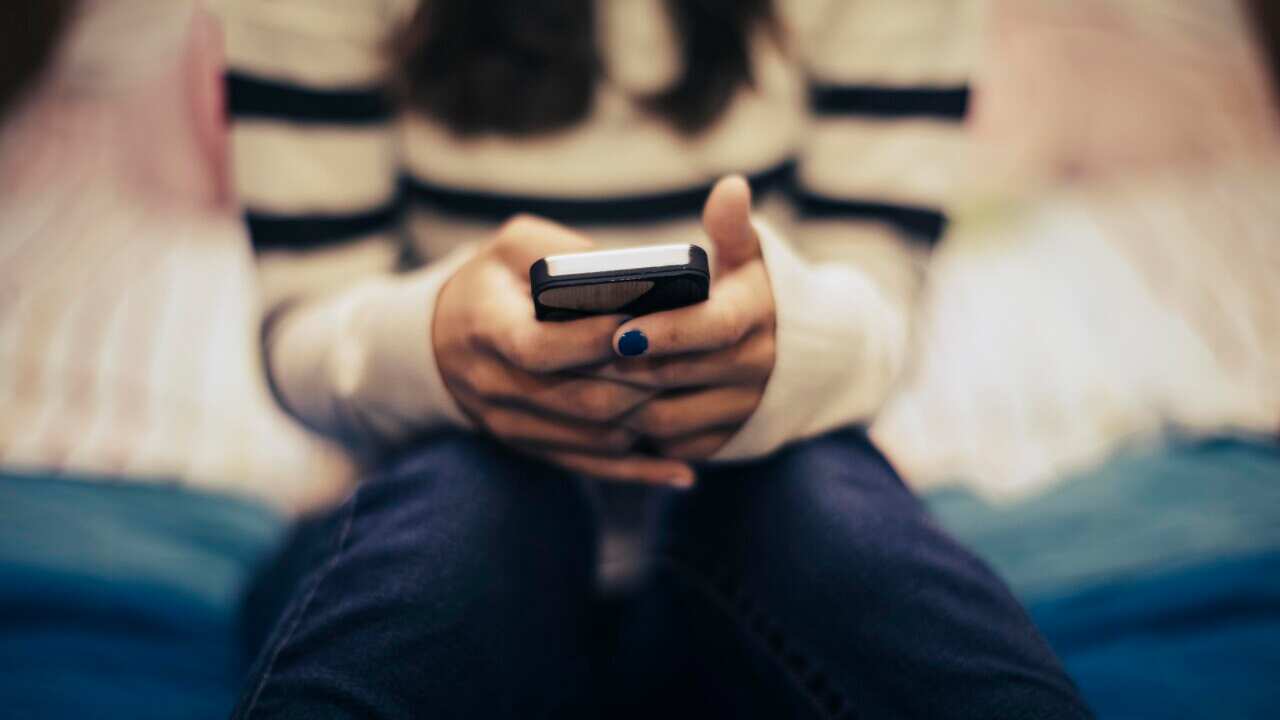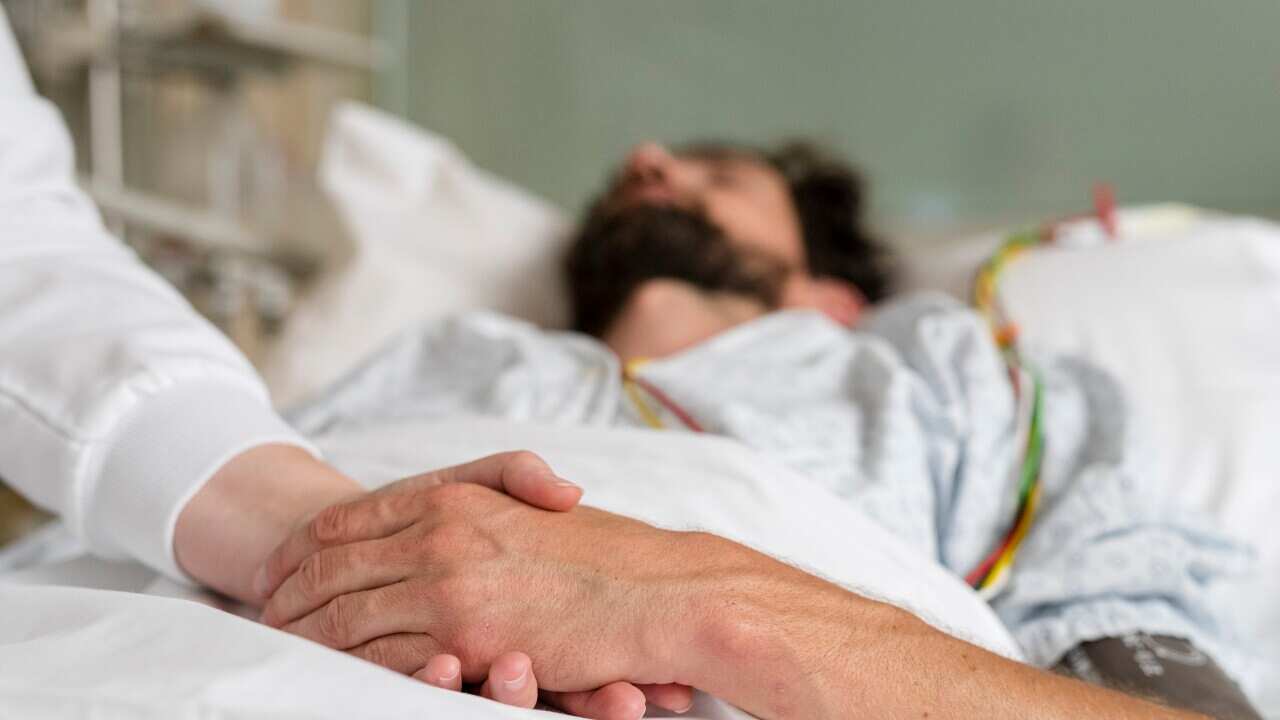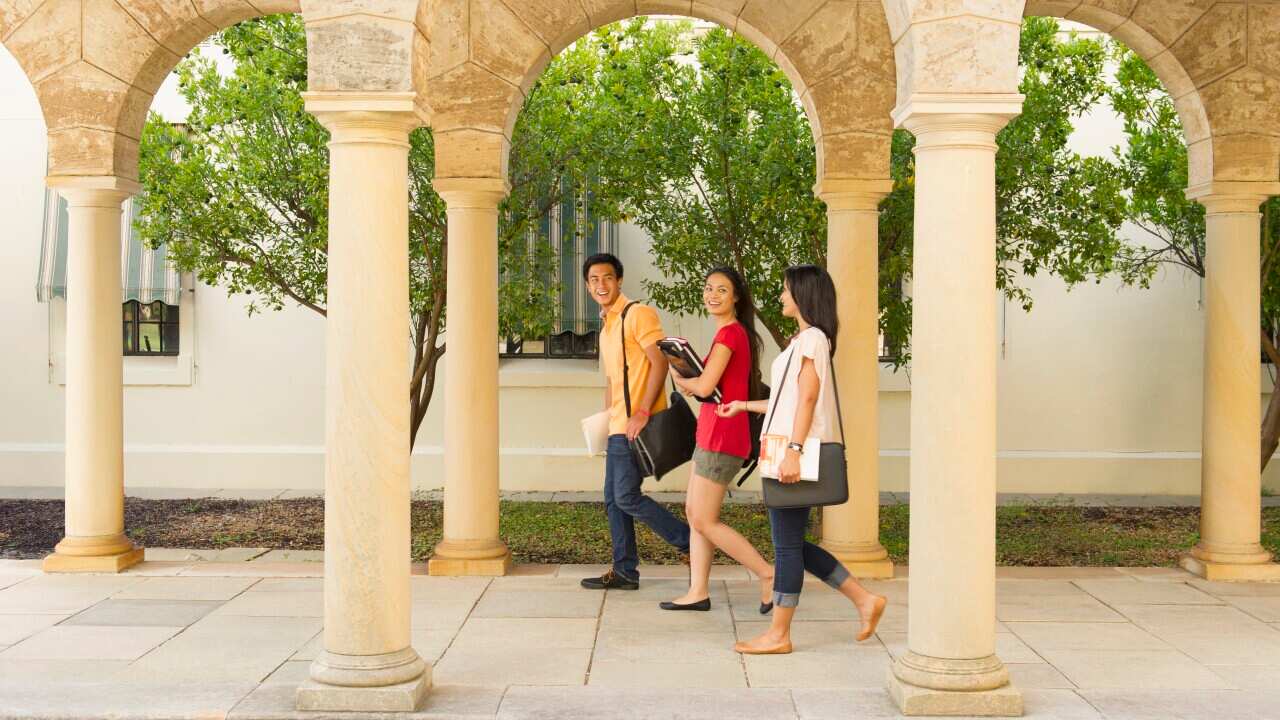TRANSCRIPT
The sewing machines are whirring at a small studio above a shop in Sydney’s west.
Among those at the table, 67-year-old Masarrat Imam, who is making a tunic for her grandson based on traditional designs from her homeland, Pakistan.
“I am very proud because I am getting better and better every day. When I am making traditional clothes, I remember always my sister and mum, and it’s a little bit emotional.”
Recently, the sewing project has helped Ms Imam recover from a series of personal challenges. Two years ago, her husband of almost 50 years passed away.
“After my husband died, I am very sad and emotional. I didn’t want to talk to anyone at home either.”
Around the same time, Ms Imam was diagnosed with stomach cancer which required surgery and intensive follow up treatment.
“I had six months after that of chemo [therapy], and it was very, very difficult for me. I was very tired. I didn’t want to talk to anyone. I didn’t want to go anywhere.”
Ms Imam’s life changed after finding new purpose through a sewing circle called Seamless. She enjoys socialising on her weekly visits, and says there are other benefits, too.
“Yeah, more confident and more happy. And I would like to continue. and I want to help with cooking and doing things like sewing and embroidery.”
Ms Imam’s transformation is a source of great pride for sewing circle founder Mona Mahamed.
“Masarrat is one of our wonderful aunties. She has found herself in the sewing which is really beautiful. It’s really given her a lot of joy, especially after her husband passing away. It’s filled up her time and given her purpose. We get many women from different cultural backgrounds, who don’t speak the same language. But they communicate through sewing. It seems to be a common language between them, which is really beautiful.”
And that’s especially crucial this year.
Around 40 per cent of 1,700 Australians surveyed for the latest Mental Health Monitor reported poor or very poor mental health.
That’s up from 33.7 per cent in November last year.
Chris Gambian is Executive Director of Australians for Mental Health. He says loneliness is a key factor.
“We asked people that question –I have enough connection in my life and I do not feel lonely. Across all age ranges and demographics, 34.7 per cent said no. So, that is a huge number of people across Australia who say that they, in practise, do not have enough connection and do feel lonely. But we did ask people what they thought the source of that was. Most people, the number one response to that question, people just didn’t feel that they had enough friends. So, the people who describe themselves as having very poor mental health, 73 per cent of people in that category said that they don’t in fact have enough connection in their life and they do feel lonely. So, no question there is a correlation between loneliness and mental health.”
Social isolation is something Ms Mahamed has experienced herself, while raising six children in Sydney’s west.
“I’ve been living with PTSD and complex depression for almost 30 years now, and its important to advocate for that. And it’s not shameful. When you are unwell mentally, you feel alone.”
In 2018, Ms Mahamed decided to do something about it – building a community and supporting vulnerable groups in her local area of Bankstown.
“The sewing started as a sewing circle by my beautiful mother. It was a free service, a social gathering and sometimes it was their only respite during the week. Beneficiaries were mainly vulnerable women who either have a domestic violence relationship or women refugees just come from overseas. Or, we have a lot of women in the over 55 category, which we all know are quite prone to homelessness. We gave them a sewing machine and get them to do alterations, from the comfort of their own home. And that helps for people with disabilities: physical, mental disabilities or young children as well.”
Participants grow sewing and basic business skills, and so far Ms Mahamed says the group has supported more than 100 women. She says employment boosts self-confidence, leading to financial freedom.
“It improves their mental health dramatically, prevents isolation and get them to really believe in themselves. But the sewing program is not just about the sewing. It’s wrap around support. I am also a registered counsellor and a life coach, so I do a lot of counselling behind the scenes to get the women to truly believe in themselves and support them along their business journey. And we complement that with business coaching. So, we help them get an ABN and we help them write their invoices and their first cheque is just like so wonderful!”
By upskilling vulnerable women, Ms Mahamed has earned financial backing from independent groups including Sydney Community Foundation. CEO Loredana Fyffe explains:
“We perform a piece of research every three years and it’s called the portrait of women and girls in Sydney. And we know from that, 41 per cent of women earn $34,000 or less. A lot of those women are emigrant women who have not had employment and traditionally have not worked. It’s so important to create these pathways with skills that they come with, that are unique and really valuable in our economy.”
To grow those economic pathways, Ms Mahamed is already working with major Australian companies and hopes to do more.
“We have a partnership with a fashion brand and we are currently making about 300 bags a month in different styles which is really beautiful. This provides ethical pay for each of the women. We would like to extend it to more fashion partners, who are more bespoke, and would like to embrace our women’s stories through their unique designs that represent their culture and identity.”
Ms Mahamed says helping others has improved her own mental health and now her broader charity called Community Support Services Village - or CSS Village - is expanding to include men too.
“We get a lot of men who become homeless and find it really difficult to navigate. And they find our space really welcoming, especially getting to use their DIY skills. So, we do employment and training whether it’s in retail or admin. So, it’s a win-win situation.”
With community connection more vital than ever, Ms Mahamed has this message for those who are struggling:
“Being lonely is difficult and it spirals. And as I always say, join a village or grow your own. But whatever you do – don’t be alone.”













